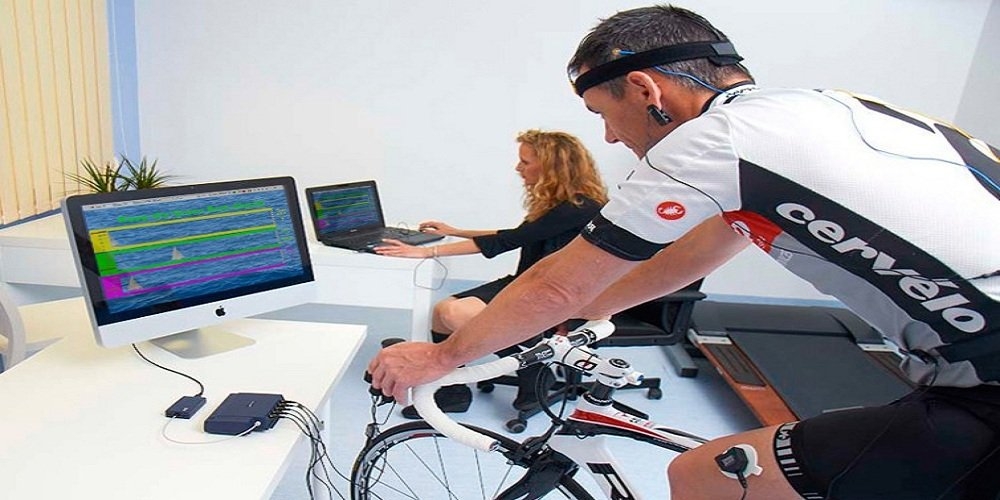تاثیر نوروفیدبک بر بهبود عملکرد ورزشکاران

برای تقویت عملکرد در تمام سطوح تمرین ورزشی ، تمرینات بدنی با شیوه های مختلف آموزش ذهنی ادغام شده است. اخیراً ، یک رویکرد یکپارچه برای تقویت عصب شناختی، سعی در تقویت نقاط قوت تمرینهای ذهنی (یعنی ذهن آگاهی) و آموزش با دستگاههای نورو فیدبک دارد. بر اساس مطالعات اعتبار سنجی قبلی که نشان دهنده تأثیر یک برنامه ذهن آگاهی-نوروفیدبک ترکیبی بر کارآیی عصبی شناختی و سطح استرس / اضطراب است ، این آزمایش با هدف امکان سنجی و پتانسیل آن به عنوان برنامه ترکیبی فشرده برای بهبود بهزیستی روانشناختی و تنظیم توجه در زمینه های ورزشی طراحی شد. 50 شرکت کننده (افراد ورزشکار و داوطلبانی که به طور منظم در ورزش مشارکت نمی کنند) به گروههایی که تحت برنامه های تمرینی کنترل آزمایشی و افراد ورزشکاری که تحت برنامه های تمرینی قرار نگرفتند تقسیم شدند. آزمایش مبتنی بر شیوه های آگاهی از تنفس بود که توسط یک نوروفیدبک پوشیدنی پشتیبانی می شد ، در حالی که کنترل فعال یکی از آنها شامل تمرین های تنفسی بود. قبل و بعد از آموزش ، شرکت کنندگان تحت آزمایش عصبی روانی و الکتروفیزیولوژیک استاندارد قرار گرفتند. تجزیه و تحلیل داده ها نشان دهنده کاهش چشمگیر زمان پاسخ و هشدارهای کاذب در کارهای شناختی رایانه ای در ورزشکارانی که آموزش را به اتمام رسانده اند ، و همچنین بهبود مداوم پتانسیل مربوط به رویداد N2 - (نشانگر فرآیندهای تنظیم توجه است) بود. همچنین کاهش کلی استرس درک شده و افزایش توانایی حفظ تغییرات ایجاد شده در شرایط واقعی مشاهده شد. یافته ها مشاهدات موجود را در مورد اثرات شناختی و عصبی تمرین ترکیبی ذهن آگاهی و نوروفیدبک برافزایش کارایی و کاهش اضطراب در بین افراد ورزشکار تایید می کند.
Neurocognitive Enhancement Effects of Combined Mindfulness–Neurofeedback Training in Sport
To foster performance across all levels of sports practice, physical training has been integrated with various mental training practices. Recently, an integrative approach to neurocognitive enhancement tried to combine the strengths of mental practices (i.e. mindfulness) and of training with neurofeedback devices. Based on previous validation studies showing the effect of a combined mindfulness–neurofeedback program on neurocognitive efficiency and stress/anxiety levels, we aimed at testing the feasibility and potential of that intensive combined program for improving psychological well-being and attention regulation in sport contexts. 50 participants (sportspeople and volunteers not regularly involved in sports) were divided into groups undergoing experimental and active control training programs. The experimental one was based on breathing-awareness practices supported by a wearable neurofeedback, while the active control one included only breathing practices. Before and after training participants underwent standardized neuropsychological and electrophysiological assessment. Data analysis highlighted a significant reduction of response times and false alarms at computerized cognitive tasks in sportspeople who completed the training, as well as a consistent improvement of the N2 event-related potential — a marker of attention regulation processes. We have also observed a general reduction of perceived stress and increased ability to keep a non-evaluative stance. Findings extend available observations on cognitive and neural effects of combined mindfulness–neurofeedback practice by showing that it is possible to observe training effects even after a limited period of practice among sportspeople. Such early training effects might mirror optimized implicit learning curves due to peculiar sensitivity to bodily signals and awareness.
